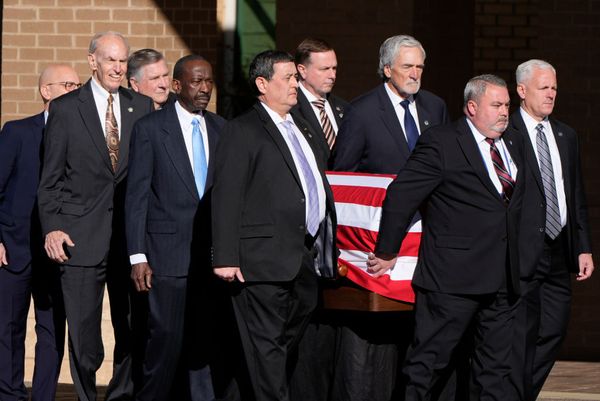
Washington (AFP) - The top US intelligence official has said over-classification of government information to keep it secret hurts national security, according to a letter released Thursday.
Director of National Intelligence Avril Haines told two senators in a January 5 letter that the system that designates huge amounts of information "secret" or "top secret" is a "fundamentally important issue" that needs active reform.
"It is my view that deficiencies in the current classification system undermine our national security, as well as critical democratic objectives," she wrote in a letter to Senators Ron Wyden and Jerry Moran, which they released on Thursday.
Over-classification impedes the ability to share vital information with allied foreign intelligence partners, with key lawmakers and with the public, she said.
"This reduces the intelligence community's capacity to effectively support senior policymaker decision-making, and further erodes the basic trust that our citizens have in government," she added.
Haines' comments came in response to pressure from Wyden and Moran for the intelligence community, which involves hundreds of thousands of government officials and private contractors, to reform the classification system.
They called the system "obsolete" in light of the production of massive amounts of documents and information enabled by digital technology.
Experts on classification say marking a document or study "secret" is the default choice in many agencies because it is easier and safer that making it public.
Officials and political leaders also routinely classify information that could prove embarrassing, experts say.
"Washington's out-of-control classification system has long interfered with the public's understanding of government actions and efforts to impose accountability for policies gone wrong," Elizabeth Goitein, an expert on the classification system at the Brennan Center, wrote in Foreign Policy last month.
A recent hot-button example is the classification of government reports on Afghanistan in the final years of the US war there.
If made public, the reports could have exposed how badly the situation had deteriorated and failures in US policy that contributed to it.
When success couldn't be demonstrated, said John Sopko, the Special Inspector General for Afghanistan Reconstruction, "they classified the assessment tool."
Another example, which Haines has made efforts to reverse, is decades of keeping secret government assessments of unidentified flying objects.
Likewise, the government continues to keep under wraps files related to the 1963 assassination of president John F. Kennedy.
Such secrecy, experts say, contributes to distrust of government and conspiracy theories.
But government officials say they cannot keep up with declassification needs.
"Many agencies find it difficult to keep up with the amount of information eligible for declassification," an intelligence official told a September 2020 congressional hearing on over-classification.







